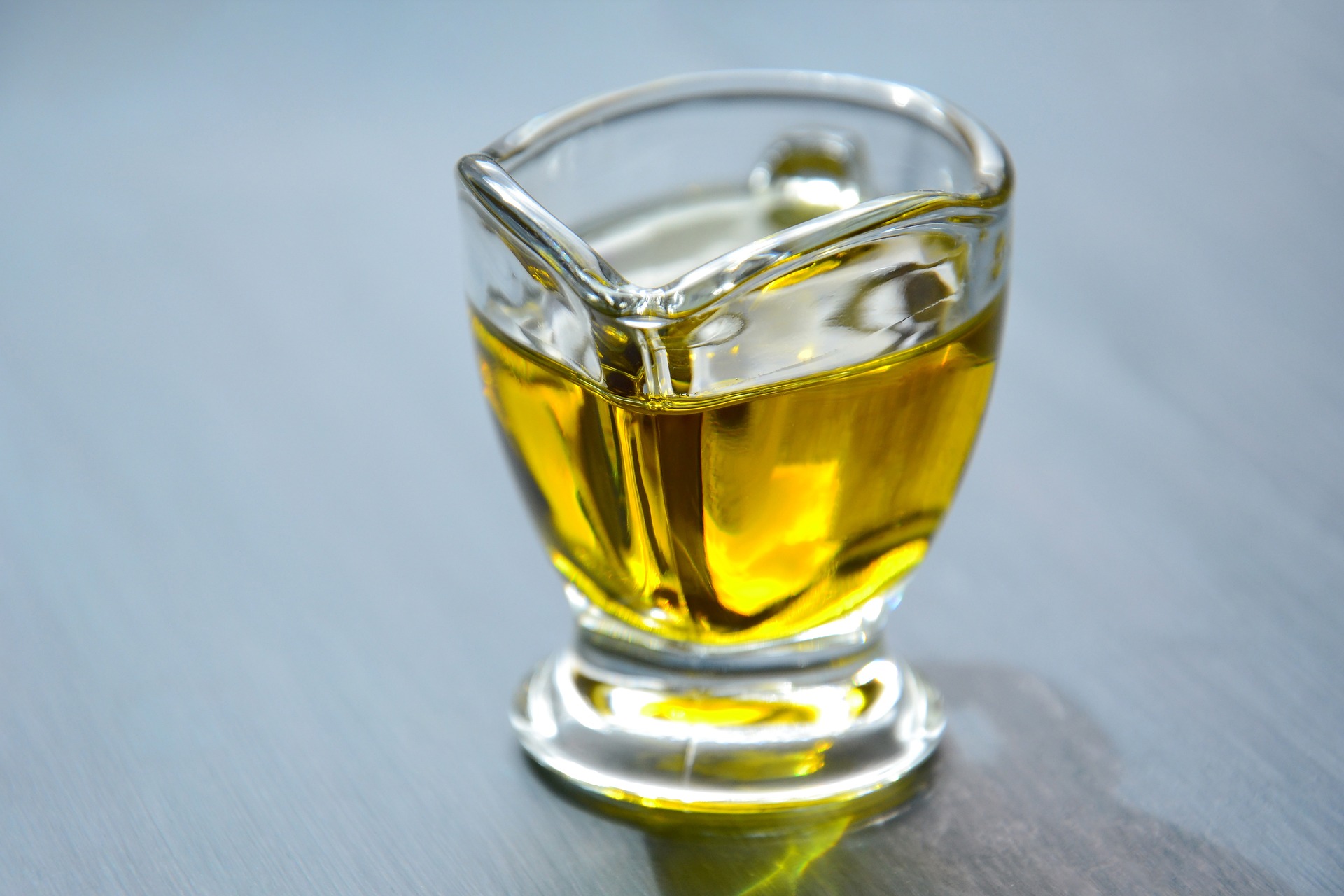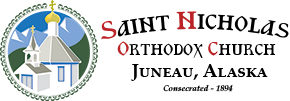Do You Want to be Healed:
Unction, Sickness, and Sin

“Do you want to be healed?” (Jn. 5.6 – RSV) We hear these words from Christ to the man at the pool of Bethsaida every year on the forth Sunday after Pascha. The Church has seen fit to place these words before us every year in the period of the Pentecostarion[1] to remind us of a deeper meaning to healing than simply Christ’s command of “Rise, take up your pallet, and walk” (Jn. 5.8 – RSV). We can get intimations of this simply by looking at older translations of the New Testament into English, and, of course, the Greek. The King James Version of the Bible says “Wilt thou be made whole?” This is a much more literal translation of the Greek[2] than the RSV and captures a subtle nuance that indicated that this is not merely a physical healing, for the Greek word ὑγιὴς (i-gees), according to Strong’s, means “healthy, i.e. well (in body); figuratively, true (in doctrine) — sound, whole.”[3] So we see clearly from this brief section alone that this passage implies physical health, doctrinal soundness and spiritual transformation, which is also the Orthodox view of healing and, consequently, salvation.
In our current practice in North America, Holy Unction has evolved as a liturgical service of Seven Gospels and served by seven priests, though if there are less than seven priests; the service can still be done. In the Byzantine tradition[4] the services of Holy Wednesday evening are dominated by the office of holy Unction, and people believe that if they have not received Unction along with their confession, they are not ready to receive communion on Holy Pascha. In the Russian tradition, this has not been as central of a service and, in the Great Book of Needs; Unction is envisioned to be a stand-alone service performed either at the church, or at the bedside of a severely ill person. The Russian tradition finds Wednesday evening dominated by Christ washing the feet of the Disciples before the Supper.[5] However, in many churches in the Orthodox Church in America, Unction is fast becoming the tradition, and the Matins of Holy Thursday is falling out of use in places. With Unction replacing the Matins service, we, as people of the Russian tradition, need to explore how the Unction service came to be, and what unction is meant to accomplish.
In the ancient church Unction was not simply viewed as a stand-alone Mystery but was also tied to the Mystery of Mysteries, Holy Communion. The best information we have is from an 11th century Priest’s Service Book[6] from the Cathedral of Hagia Sophia in Constantinople.[7] This particular book shows us that what we consider a lengthy service of Unction on Holy Wednesday is actually a very abbreviated service. Today, we read only seven Gospels and have seven anointings at a full Unction service. In the ancient euchologion, the service calls for seven priests and is done over the course of seven days. Each of the remaining readings was done as part of a Divine Liturgy, and the anointing is closely tied with the reception of Communion by both the sick person and those close to them.
This connection to Communion brings us back to our opening paragraph and Christ’s question to the Paralytic, “Do you wish to be made whole?” Communion, Unction, Confession, and all of the general praxis, or practices, of the Orthodox Church are not just some magical liturgical voodoo where if we do X, Y, Z, then God will do A, B, C for us. They are all part of a larger process of reintegrating our scattered nature, purifying us from sin, and making us whole and complete human beings again. We all exist in a state of sin; we all suffer the consequences of Adam and Eve’s Fall, even if we do not inherit their sin. In essence, in addition to having a mortal body that is bound to break down and “return to the dust” from whence it was created, our spiritual state is fragmented as well. To use traditional language and echo the translators of Metropolitan Hierotheos’ Vlachos’ books, our nous is darkened and fragmented. There is, unfortunately, no good English rendition for the word nous, and many of the more recent translations coming out of Greece are simply refusing to translate the word. The definition provided for νόυς (nous) in Night in the Desert of the Holy Mountain, the first of Met. Hierotheos’ works to appear in English and one which set the tone for later translations is as follows:
Nous (νόυς): The word has various uses in Patristic teaching. It indicates either the soul or the heart or even the energy of the soul. Yet, the nous is mainly the eye of the soul; the purest part of the soul; the highest attention. It is also called noetic energy and it is not identified with reason (logiki – λογικι).[8]
Since the highest attention and energy of the soul is fragmented and scattered, part of the process of learning to become whole and being spiritually healed involves physical purification and healing of our damaged nature. It is this internal healing that is of utmost importance to us in the Mystery of Unction.
Our physical healing is not guaranteed simply by calling for the priest and having him come perform some magic rite and smear some oil on our heads, etc. This is taking a voodoo-like approach to our Holy Mysteries and to our salvation. Our Orthodox faith, however, is not about voodoo, and it is not about “getting your passport punched” so you will be admitted into the Kingdom, which is already here and within each of us (Luke 17:21). A monk I know once stood with me in the beautiful little chapel of his monastery and pointed all around at the décor, telling me “Simeon, look at all this: the icons, the candili gently flickering, the beautiful chanting during the services, and even the services themselves. Then realize that the greatest saints didn’t need any of it. They had already purified themselves and stood in the presence of God. They left all of this to us to help us along the path to God.” The services of the Church, including Unction, are about purifying ourselves internally and reintegrating a fragmented nous so that we can realize the Kingdom within ourselves, and get our sin out of the way of the Kingdom acting within our hearts, and our community as a whole. The external power of the services is that they help us focus our scattered thoughts, and help us, in the words of the Parable of the Prodigal Son, “come to ourselves” (Lk. 15:17) and rise up and go to the Father (Lk. 15:20). This coming to ourselves, and making the effort to return to the Father is the key to salvation, and this is what the church gives us in all of Her Mysteries and practices. If we simply wait for Unction, or any other Sacrament, to work like magic, it would seem that we’re putting ourselves at great risk on Judgment Day.
Unction, in essence, is about the healing of soul and body through our Lord Jesus Christ. It is about reintegrating our fragmented nous through confronting our own faults and reintegrating our nous through the practice of silence. Of course, it’s not an easy process. Each one of us, including myself, is spiritually sick and borderline delusional. We like to look only at the good in ourselves and become complacent with believing that we are sinless and spiritually healthy because we go to church on Sundays and we don’t steal, murder, or commit adultery. But are we really healthy? We complain at the length of services if they go more than an hour or so, we fight each other over petty things like whether we hang metal or wooden doors on the front of the church. We are also averse, or so it would seem, to spending time with God in silence. With the average American watching 35 hours of television a week and the incessant marketing of technological gadgets like I-pods designed to allow us to never have to do anything in silence, it would seem that we, as a culture, are averse to silence.
Yet if we simply wait until we are sick enough to need to “call the priest” for Unction and view this Mystery as some magic spiritual cure that gets our passport into the Kingdom punched, we have missed the point. The service, as beautiful and helpful as it is, is not a magic spiritual cure-all for us. We need to start to integrate the meaning behind the Unction service into our daily lives, to purify our nous and acquire what St. Seraphim of Sarov calls “the spirit of peace” before we need Unction. If we have done this, we will be well on our path to Salvation. To that end let us prepare for Unction, as we should to receive communion at Pascha. If we are to be anointed on Holy Wednesday, we should follow the Lenten fast, attend as many of the Lenten Presanctified Liturgies and Holy week services as possible. Most importantly, we should confess before Unction. They work together, and in some places, you will not be anointed “for the Remission of sins, and the healing of soul and body” if you do not attend Confession before the unction service begins. So, let us prepare ourselves, let us repent and “rise up and return to the Father” as is fitting, then let us come to unction prepared and embrace it as part of our spiritual practice.
Fr. Simeon B. Johnson
6 April, 2015
Passion Week: Great and Holy Monday
[1] The Pentecostarion is similar to the Lenten Triodion, except that instead of containing the variable portions of our services leading up to Pascha, it contains the variable portions of the services from Pascha through the Sunday after Pentecost, or the Sunday of All Saints.
[2] Θέλεις ὑγιὴς γενέσθαι? Thelis igis genesthai? Desire you (singular) to become whole?
[3] James Strong. Strong’s Exhaustive Concordance of the Bible. (Abingdon Press, 1890), Greek citation # 5199.
[4] Primarily followed by Greeks and Antiochians.
[5] In the Matins of Holy Thursday, traditionally celebrated on Wednesday Evening.
[6] Also known as an euchologion.
[7] Cioslin 213
[8] Met. Hierotheos Vlachos. A Night in the Desert of the Holy Mountain: A Discussion with a Hermit on the Jesus Prayer, Second Edition. Trans. Effie Mavromichali. (Levadia, Greece: Birth of the Theotokos Monastery, 1995), 190.
